Author Craig Mod seems to be following me. I saw his picture in Kyoto Station. Now he’s doing a 200km walk in the Kiso valley, where I walked just a few days ago. Follow his latest pop-up newsletter Between Two Mountains for a unique view of Japan.
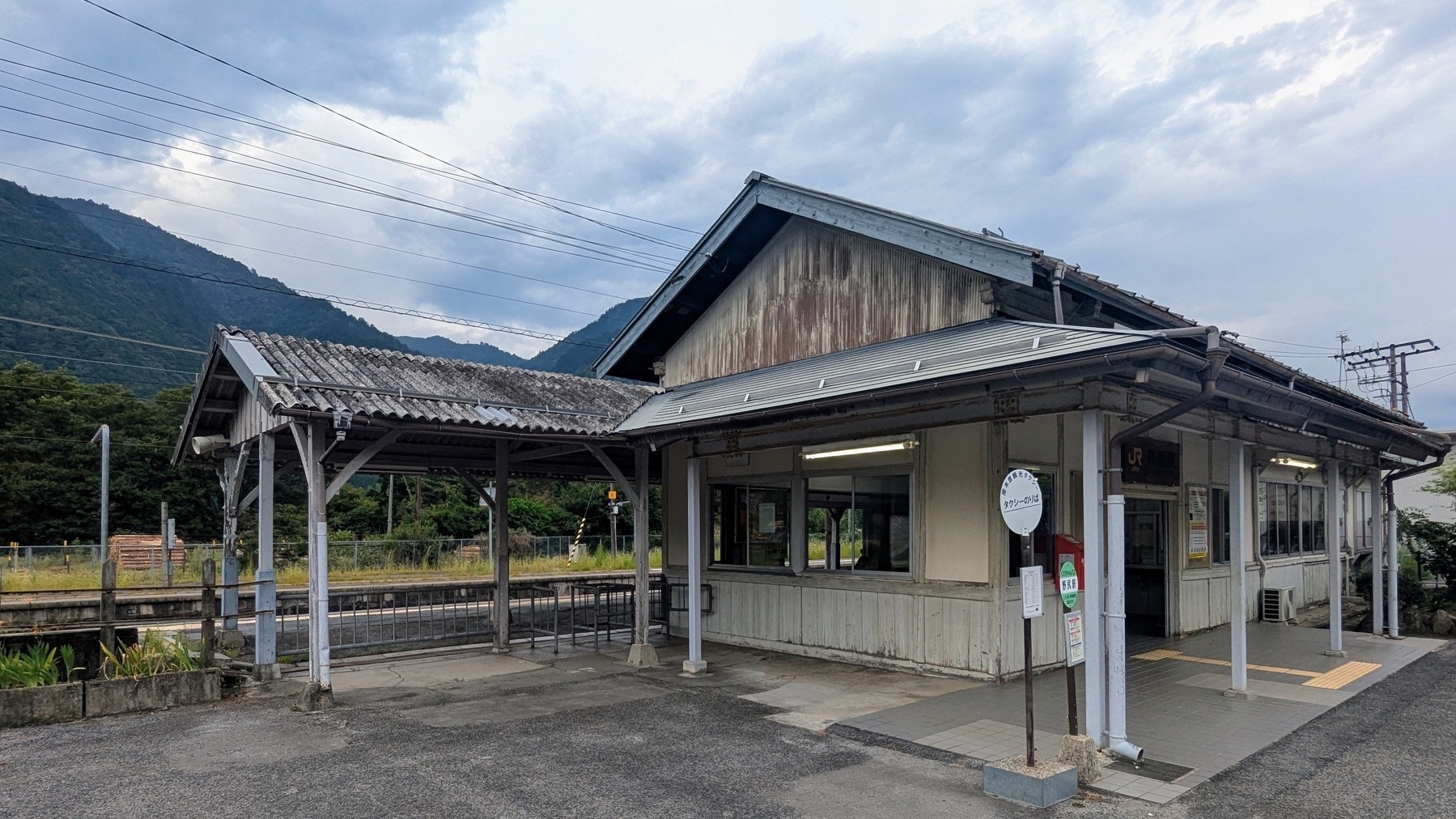
#KisoValley #Japan #Walking #Travel #SlowTravel
Western learning aims for ‘completion,’ ‘graduation’ - an end-point. But Shu Ha Ri is cyclical. True mastery means returning to the basics (Shu) with new depth. It’s a lifelong process of refining and understanding anew. Never stop being a beginner.
#LifelongLearning #ShuHaRi #SkillAcquisition
📚Tsundoku emergency temporarily averted.
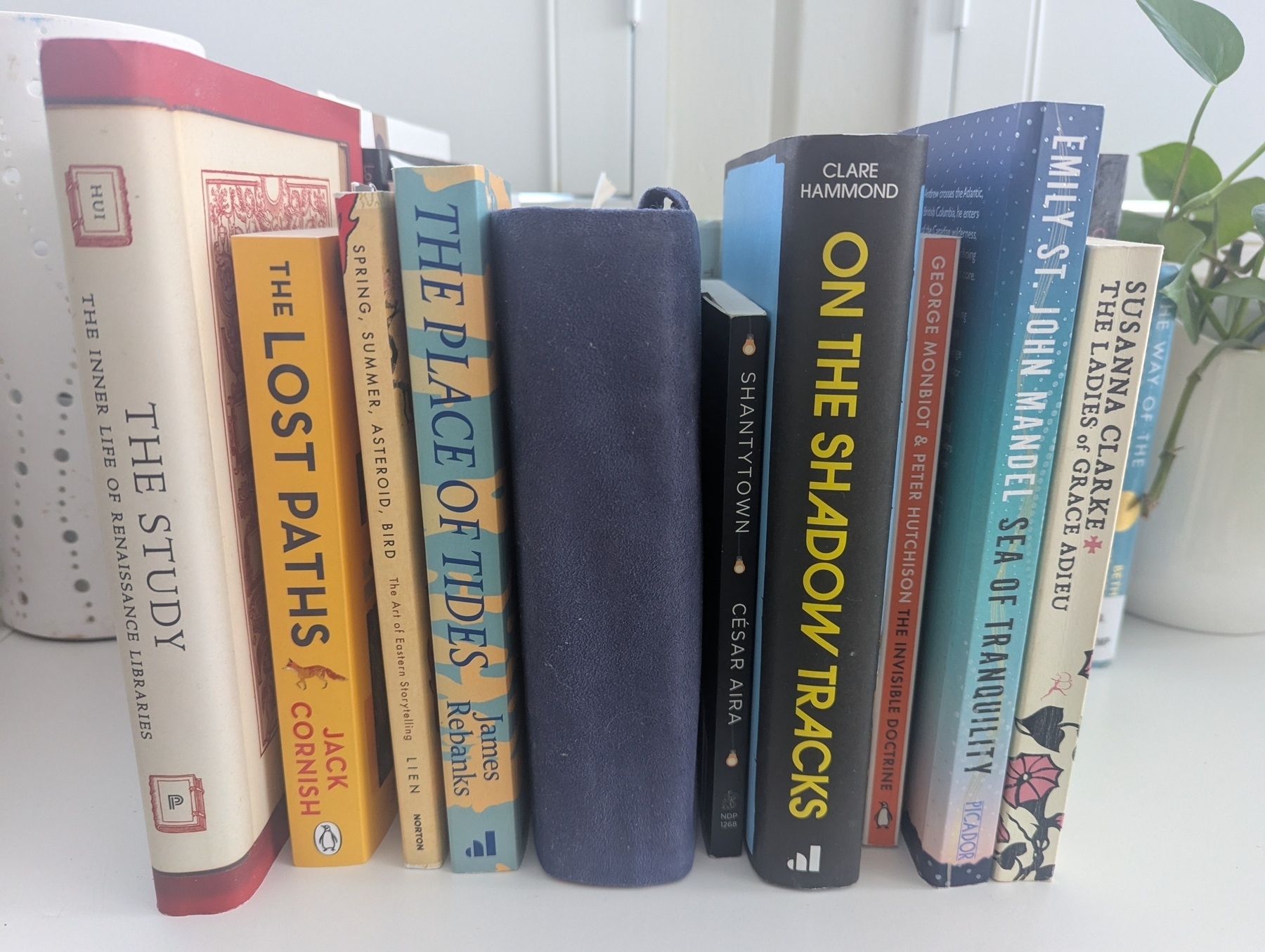
Japanese Shu Ha Ri: Is it Better Than Western Learning Methods?
I’m the author of Shu Ha Ri: The Japanese Way of Learning, for Artists and Fighters, available now.
The way we approach learning fundamentally shapes how deeply we can master a skill. In the West, we’ve largely embraced linear progression. We move methodically from theoretical understanding to practical application. And the dominant image of learning is that of a ladder or a pyramid which the learner climbs step by step to reach the top. Yet there exists an alternative philosophy that challenges this conventional wisdom. It’s the Japanese concept of Shu Ha Ri. It’s not better, perhaps, but I’ve found it different in interesting and fruitful ways. Interesting enough to write a short introduction to the concept, since no one else had done so.
Western learning models, certainly those I grew up with, characteristically begin with cognitive frameworks before advancing to hands-on practice. Students typically start with rules and theories before attempting simplified components. Only then do they attempt the full complexity of their chosen discipline. In contrast, Shu Ha Ri represents a cyclical process. It moves through three distinct phases:
- Shu (imitation),
- Ha (innovation), and
- Ri (detachment or transcendence).
This isn’t so much a ladder, a one-way journey, as a circle, or better, a repeated spiral, in which experts don’t stop learning but return to the basics and understand them anew.
While Western models serve their purpose in structured environments, the Shu Ha Ri approach offers crucial insights for achieving true mastery, particularly in disciplines that demand intuitive understanding rather than merely intellectual comprehension.
How Western Linear Learning Actually Works
Western psychology has produced several influential models that support linear skill acquisition.
-
Fitts & Posner’s Three-Stage Model describes progression from the Cognitive stage, where learners consciously think through each movement. It then moves to the Associative stage of refinement and error reduction. Finally, it reaches the Autonomous stage where skills become largely unconscious.
-
Adams’s Two-Stage Model offers a simpler linear progression from the Verbal-Motor stage to the Motor stage, where performance becomes increasingly automatic.
-
The Dreyfus model proposes that learners progress through five levels: novice, advanced beginner, competent, proficient, and expert.
-
Perhaps most influential is Scaffolding and Fading, rooted in Lev Vygotsky’s theory of the proximal zone of development. This approach deliberately simplifies complex skills into manageable components, with teachers providing extensive initial support before gradually removing assistance.
All these models assume that effective learning requires moving from simple, understood components toward complex, integrated performance. Obviously this isn’t wrong. But this linear progression may inadvertently create barriers to the deep, intuitive knowledge that characterizes genuine expertise.
Why Shu Ha Ri Creates Deeper Mastery
Western models excel at creating competent practitioners, but they may limit the development of true mastery. By prioritizing theoretical understanding and simplified components, these approaches can prevent learners from accessing the profound depths that Shu Ha Ri makes possible.
An important aspect of learning risks being overlooked - the way in which students often learn best from observing and imitating practitioners in action. As psychologist Albert Bandura observed, learning is fundamentally a social activity.
Does Starting With the “Whole” Beat the “Simplified”?
Western scaffolding deliberately fragments skills into digestible pieces. A violin student might spend considerable time on bow hold before attempting a simple melody, or a chef might practice knife cuts in isolation before approaching actual recipes. Yet this reductionist approach, though logical, can prevent learners from experiencing the skill’s true essence.
Shu Ha Ri takes a radically different approach. In the Shu stage, students engage immediately with the complete, unsimplified form. Recently I visited the Japanese city of Matsumoto, which is where music educator Shinichi Suzuki (1898-1998) lived and worked. I remembered first encountering the Suzuki method of music education years previously, and marveling at how very young children were encouraged to play complete pieces of music and to be immersed in musical culture from a very young age. A student of the Japanese tea ceremony doesn’t begin with broken-down movements or theoretical principles. They observe and attempt to replicate an entire ritual (known as temae), albeit simplified, from their very first lesson. And this immersion in the “whole” allows learners to absorb subtle relationships between components that might be lost in fragmented approaches.
Why Imitation Surpasses Cognition
Western educational models place considerable emphasis on cognitive understanding before physical practice. Shu Ha Ri fundamentally inverts this priority. The Shu stage prioritizes imitation and embodied practice while deliberately minimizing cognitive load.
This is somewhat consistent with Albert Bandura’s presentation of observational learning, and the idea that we learn best not in isolation, but socially, by observing and imitating effective practitioners.
Students are encouraged to copy their master’s movements and timing without initially concerning themselves with underlying principles. And this allows “embodied cognition” to develop naturally through physical practice rather than intellectual analysis.
A jazz musician learning through traditional Western methods might spend considerable time studying music theory and chord progressions before improvising. But the Shu Ha Ri approach would emphasize extensive listening and playing along with masters. This allows the musician to develop intuitive understanding of rhythm and phrasing, along with harmonic relationships and timing that cannot be fully captured in theory books. This was in fact very close to the approach of Clark Terry (1920-2015), legendary jazz trumpeter and educator, who proposed:
“imitation, assimilation, and then innovation”.
Can Learning Be Cyclical Rather Than Linear?
Western models typically imply completion. They suggest reaching a final “autonomous” stage where learning essentially concludes. Newly minted experts risk being led to believe they have somehow finished their education. Perhaps we have to keep talking about ‘lifelong learning’ because otherwise we might forget to do it. But Shu Ha Ri presents a fundamentally different philosophy. Rather than linear progression toward completion, it describes a cyclical journey of continuous refinement.
After achieving mastery (Ri), practitioners commonly return to foundational practices (Shu) with deeper understanding. They uncover subtleties previously invisible to them. So a master calligrapher might return to basic brush strokes after decades of practice. By returning to their ‘beginner’s mind’ they may find new and previously unrecognised depths in movements they’ve performed thousands of times. This cyclical concept suggests that true mastery isn’t a destination. It’s an ongoing process of deepening understanding.
Which Path Actually Leads to Mastery?
Western learning models possess considerable strengths, particularly in academic settings where clear progression markers are essential. These models prove invaluable for complex technical skills where safety and precision demand systematic understanding. Medical training, engineering education, and scientific research all benefit from structured, theoretical foundations.
However, when our goal extends beyond competency to genuine mastery, Shu Ha Ri offers a complimentary framework. This is particularly true in disciplines requiring intuitive understanding or creative expression. And the traditional Japanese approach recognizes that true mastery involves more than accumulated knowledge or perfected technique.
Shu Ha Ri encompasses a quality of understanding that emerges through sustained practice and cyclical refinement. It prioritizes deep immersion in complete forms and wholeness over fragmented components. Linear models efficiently create capable practitioners. But the cyclical and holistic philosophy of Shu Ha Ri nurtures the lifelong pursuit of true mastery. Its imitation-based approach and emphasis on complete forms creates deeper understanding than fragmented learning.
We’re increasingly focused on rapid skill acquisition and short cuts to expertise. Yet this ancient wisdom reminds us that the deepest forms of human expertise can’t be rushed or simplified. They must be lived, embodied, and continually refined through patient, cyclical practice.
Read more in Shu Ha Ri: The Japanese Way of Learning, for Artists and Fighters.
And did you know you can sign up to the Writing Slowly weekly email digest?
References
Adams, J. A. (1971). A closed-loop theory of motor learning. Journal of Motor Behavior, 3(2), 111-150.
Bandura, A. (1962). Social Learning through Imitation. University of Nebraska Press: Lincoln, NE.
Bradić, S., Kariya, C., Callan, M., & Jones, L. (2023). Universality and applicability of shu-ha-ri concept through comparison in everyday life, education, judo and kata in judo. The Arts and Sciences of Judo (ASJ) Vol. 03 No. 02.
Dreyfus S, Dreyfus H. (1980). A five stage model of the mental activities involved in directed skill acquisition. California University Berkeley Operations Research Center. Accessed at www.dtic.mil/dtic/inde…
Fitts, P. M., & Posner, M. I. (1967). Human performance. Brooks/Cole.
Freimann, R. (nd) An Interview with Clark Terry. banddirector.com. Accessed at https://banddirector.com/interviews/an-interview-with-clark-terry-by-rachel-freiman/
Hammerness, K., Darling-Hammond, L., & Bransford, J. (2005). How teachers learn and develop. In L. Darling-Hammond & J. Bransford (Eds.), Preparing teachers for a changing world: What teachers should learn and be able to do (pp. 358-389). Jossey-Bass.
Magill, R. A., & Anderson, D. I. (2017). Motor learning and control: Concepts and applications (11th ed.). McGraw-Hill Education.
Peña A. (2010). The Dreyfus model of clinical problem-solving skills acquisition: a critical perspective. Medical education online, 15, 10.3402/meo.v15i0.4846. Accessed at doi.org/10.3402/m….
Vygotsky, L. S. (1978). Mind in society: The development of higher psychological processes. Harvard University Press.
Wood, D., Bruner, J. S., & Ross, G. (1976). The role of tutoring in problem solving. Journal of Child Psychology and Psychiatry, 17(2), 89-100.
Keeping a diary is a way of living
“A diary is not only a text: it is a behaviour, a way of life, of which the text is a by-product" - French theorist Philipe Lejeune. Source: Arts & Ideas Podcast.
Exactly so. I have a journalling habit, which fuels my Zettelkasten, (my collection of linked notes), which in turn fuels my writing. This in turn affects my life, which I journal about. It’s a virtuous circle.
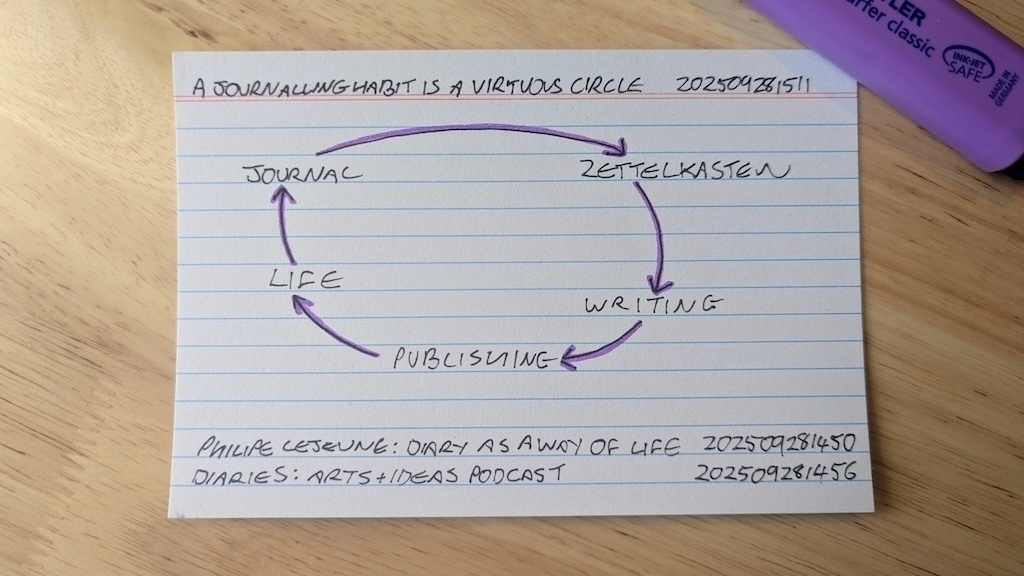
I’m the author of Shu Ha Ri: The Japanese Way of Learning, for Artists and Fighters.
And did you know you can sign up to the Writing Slowly weekly email digest?
Magpie swooping season has been busy. But on this morning’s bike ride the magpies I saw were busy chasing a noisy miner (not a mynah). Then just when I thought I’d escaped, I was swooped - by a mob of ebullient rainbow lorikeets, high on their supply of bottlebrush nectar.
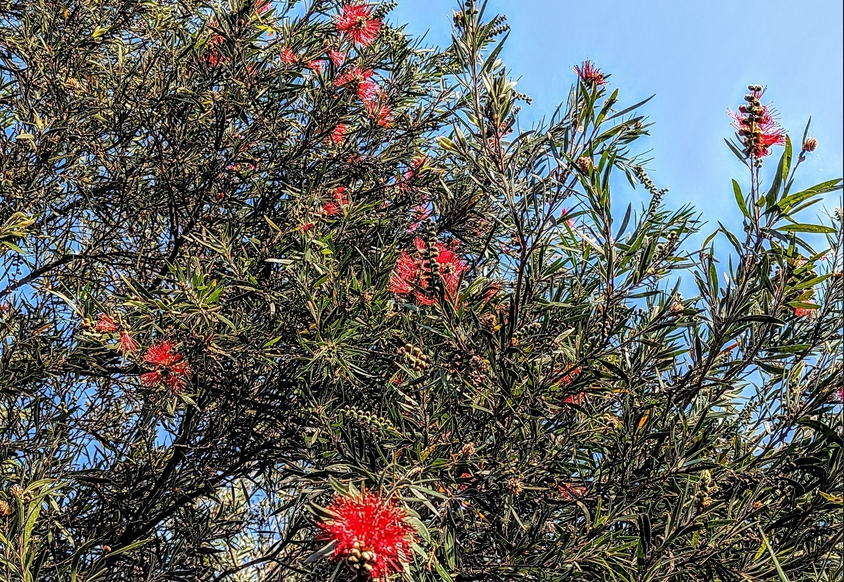
#birdlife #bikelife #swoopingseason
I’ve been deep into writing about learning and the art of taking notes. That’s why I love it that Steven Johnson keeps returning to the same theme: The Blank Page Revolution. How paper changed the way we think.
#zettelkasten #note-taking #PKM #WritingLife #ThinkingOnPaper #HistoryOfIdeas
My uncle and both my grandfathers were dedicated anti-fascists. That’s why I get to be here today, reminding you that they won.
Zettelkasten podcast episodes
Here are a couple of podcast interviews where the Zettelkasten approach to making notes is discussed in detail. Enjoy!
William Wadsworth (Exam Study Expert) interviews Sonke Ahrens, author of How to Take Smart Notes. Apple Podcasts.
Sönke Ahrens on Niklas Luhmann’s writing process:
“The main part of the writing process happened in this in-between space most people, I believe, neglect. They write notes, they read, they polish their manuscripts, but I think few people understand the importance of taking proper notes and organising them in a way that a manuscript, an argument, a chapter can evolve out of that.”
Jackson Dahl (Dialectic) interviews Billy Oppenheimer, Ryan Holiday’s research assistant, on staying attuned for clues. Apple Podcasts.
“I adopted/adapted Ryan Holiday’s notecard system, which he learned from Robert Greene. And it’s just literally boxes of 4x6 notecards. I’ve never seen Robert’s actual cards, but I have seen Ryan’s. His are filled with shorthands: a maybe a phrase, a word, or a single sentence that conveys a story from some book. They are little reminders capturing the broad strokes of something. You notate it with the book and page number so you can go back and find the specific details.”
“Niklas Luhmann also has another great idea about making notes for an ignorant stranger… Because that’s what you are when you come back to it. We think, “There’s no way I’m going to forget this story.” You come back to it, and it’s highlighted and underlined. You’re like, “What was I loving about this?” I try to make the note cards for an ignorant stranger. You should be able to pick one up and have enough context to make out what this thing is. And so in a similar way, in the margins of books, I try to do that for myself.”
If AI can’t do simple anagrams, how is it meant to fix the economy and make our jobs obsolete? (Admittedly, my job doesn’t involve solving anagrams - I’m not that senior - but still).
#anagrams #AIfail #AI
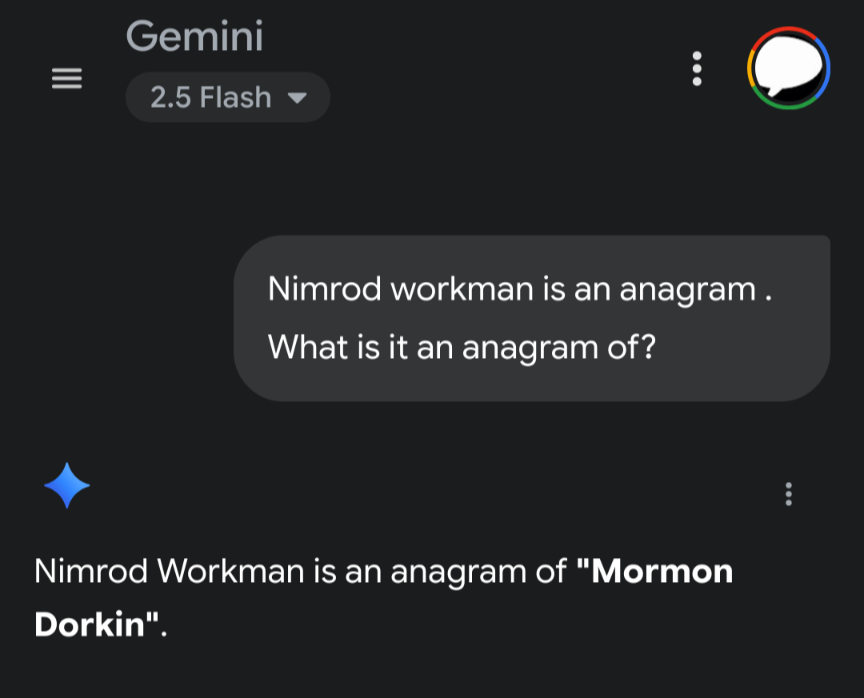
Some books I read before visiting Japan.
#reading #Japantravel #shuhari
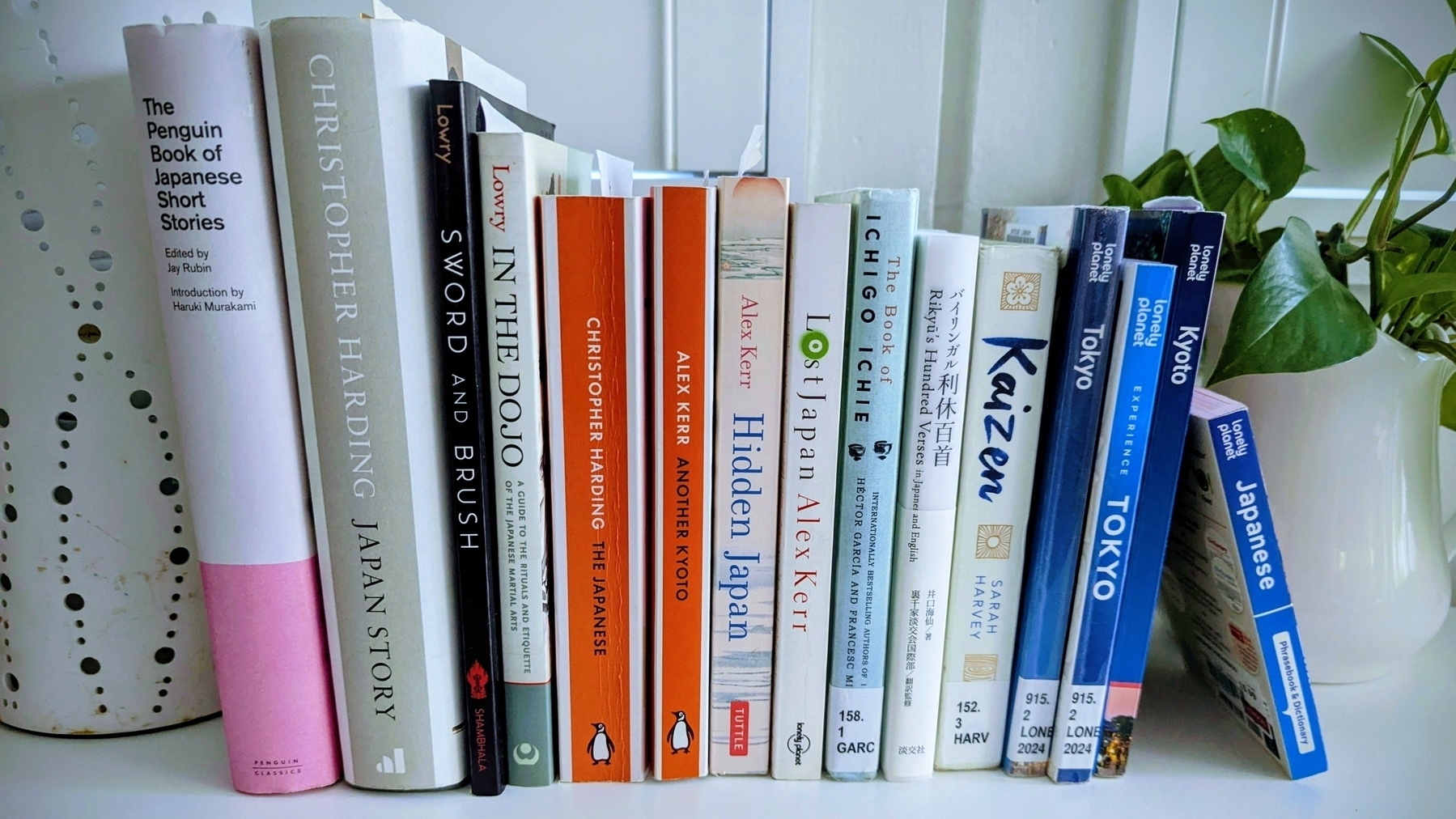
Western learning is linear; mastery is cyclical. A new article will show exactly why the Japanese concept of Shu Ha Ri offers a more effective path to true expertise than conventional Western methods. Is it time to unlearn how we learn?
#ShuHaRi #Learning #Mastery
An atomic note isn’t just about ideas; it’s about time. Start smaller, stop sooner, and your notes become easier to reuse and connect. ✍️ Post here: The shortest writing session that could possibly work.
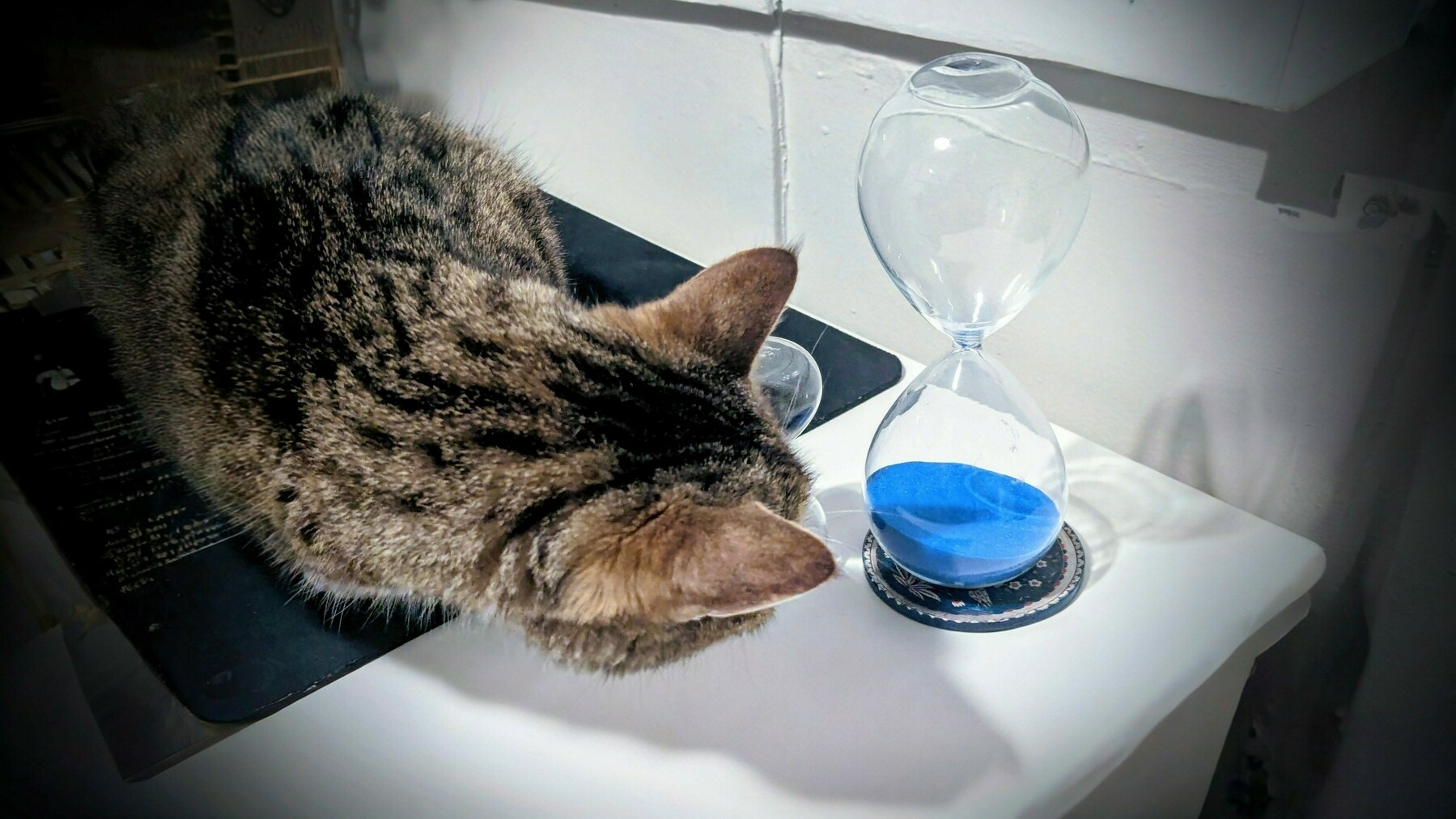
#NoteTaking #KnowledgeWork #zettelkasten #writingtips
On a single small island in Shugaku-in, the imperial pleasure garden, Autumn has arrived.
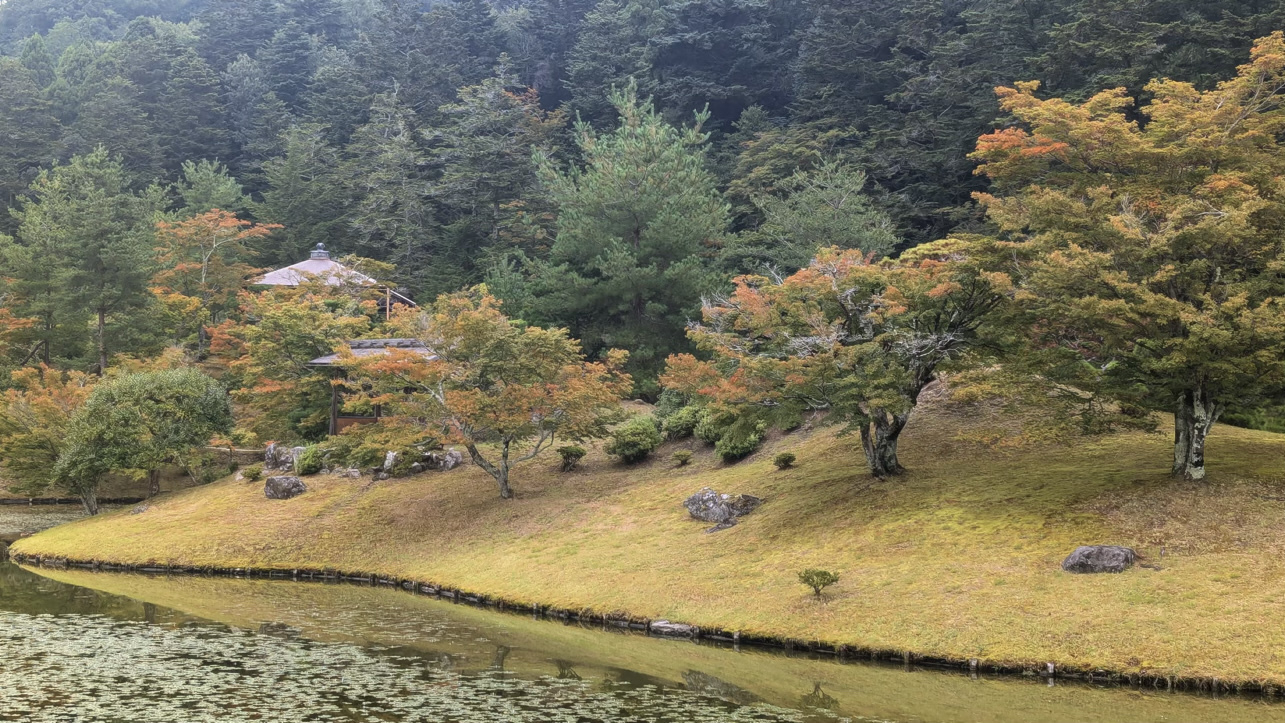
I’m the author of Shu Ha Ri: The Japanese Way of Learning, for Artists and Fighters, available now.
#japantravel #Kyoto #KyotoJapan #shuhari #Japanesegardens
Kyoto is a unique mix of ancient and modern. From this angle Japan’s tallest wooden pagoda Gojūnotō, rebuilt 1643, has a great fire escape.
I’m the author of Shu Ha Ri: The Japanese Way of Learning, for Artists and Fighters, available now.
#japantravel #Kyoto #KyotoJapan #shuhari #streetphotography
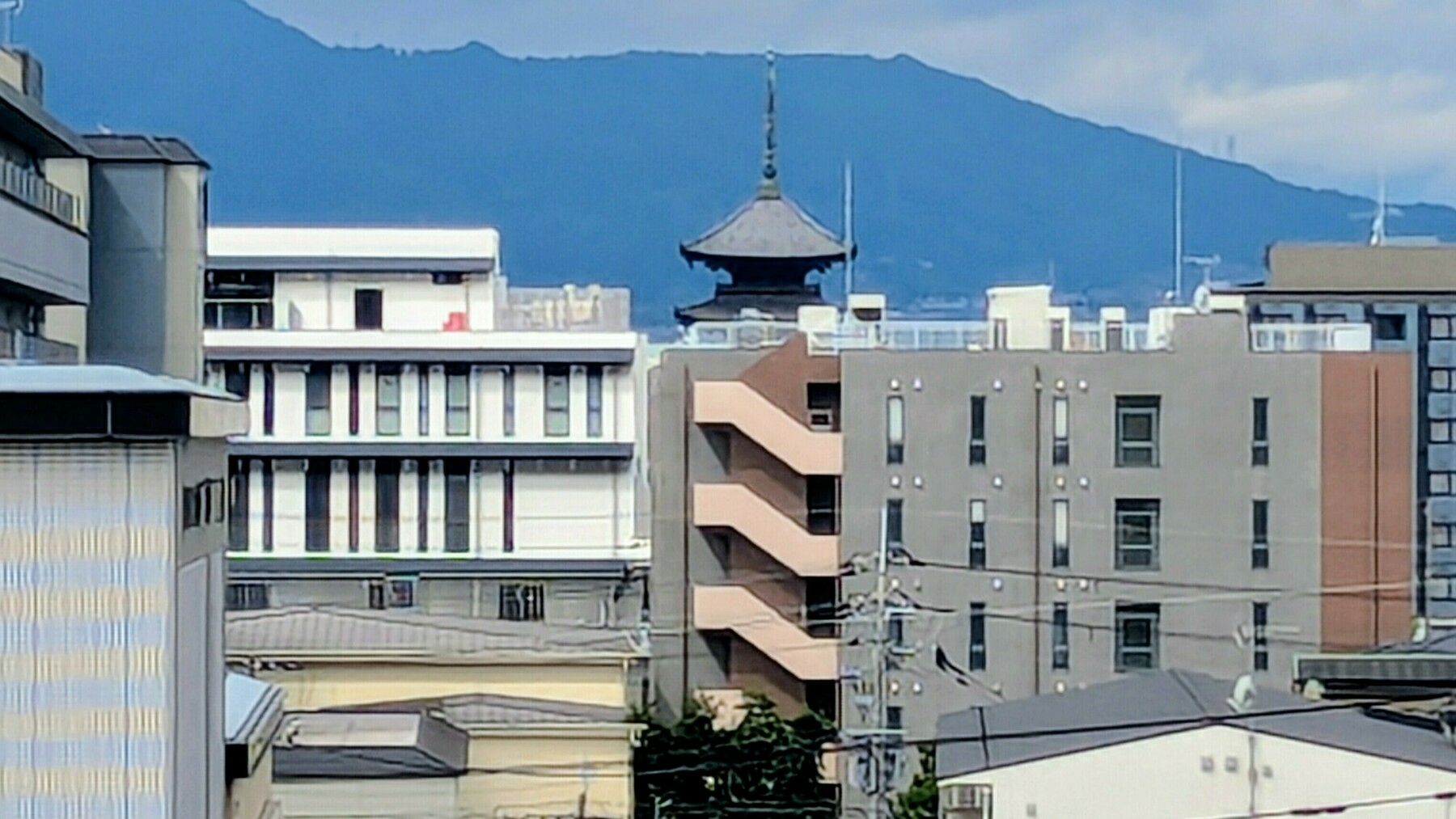
Craig Mod’s newsletter Ridgeline features a wry account of a fashion photoshoot in a pizza toast café for the Uniqlo clothing wear in-house magazine. In search of good coffee at Kyoto Station I stumbled upon the very article at the front of the little Uniqlo store there.
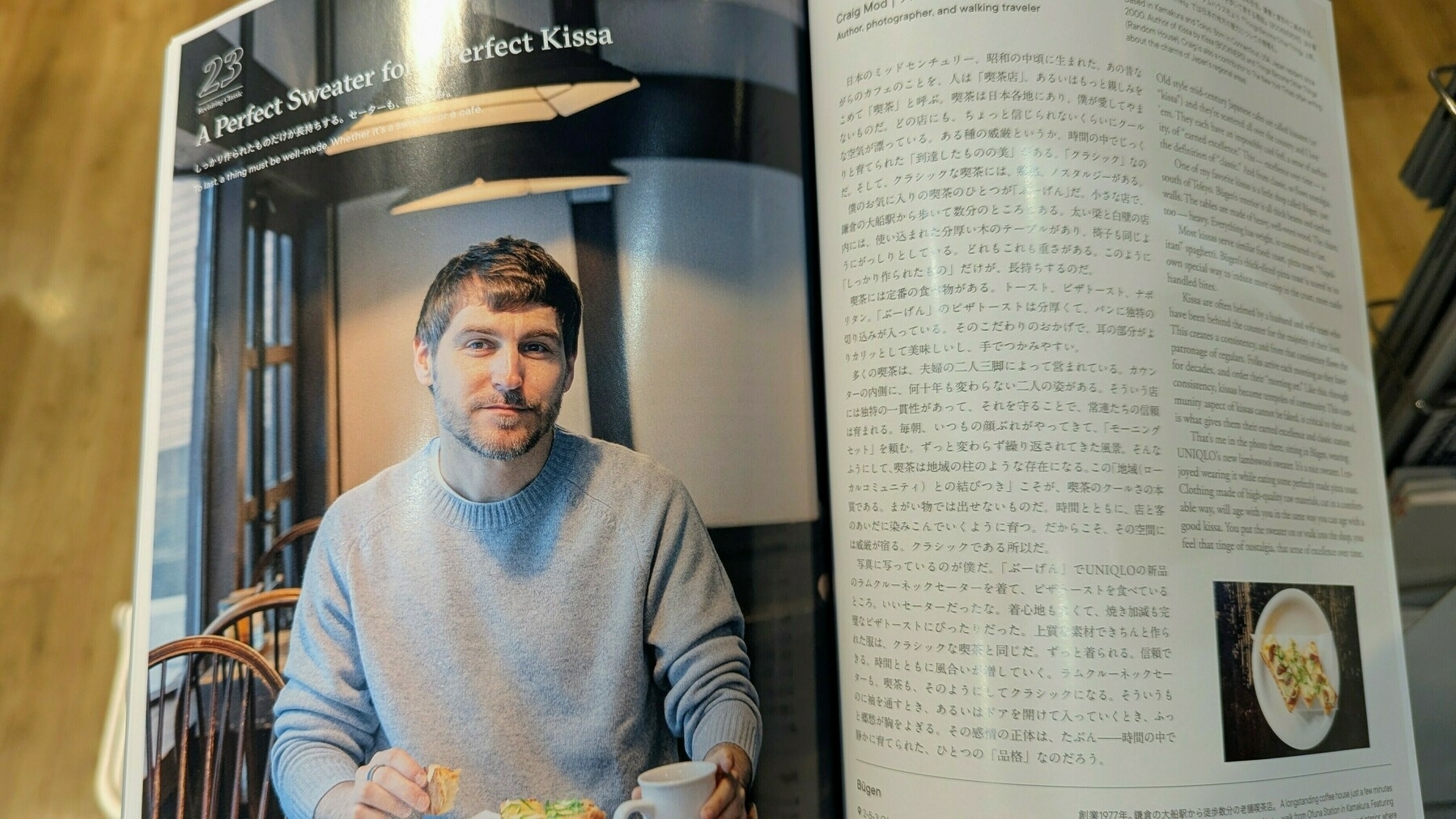
Now you’re probably wondering whether they let him keep the sweater. That’s what they call a cliff-hanger, though admittedly it’s a small cliff.
And if you’re wondering where to get ok coffee at the station, it’s Caffe Ciao Presso. I’m telling you this, Internet friends, so you can correct me, but not if you like Americano (I’m from Sydney after all).
Shu Ha Ri: The Japanese Way of Learning, for Artists and Fighters is available now.
#japantravel #Kyoto #coffee #shuhari
💬“slow-cooked projects made just for fun.” - New Public
That pretty much sums up this website.
An ordinary street scene in Kyoto can have a unique atmosphere.
Shu Ha Ri: The Japanese Way of Learning, for Artists and Fighters is available now.
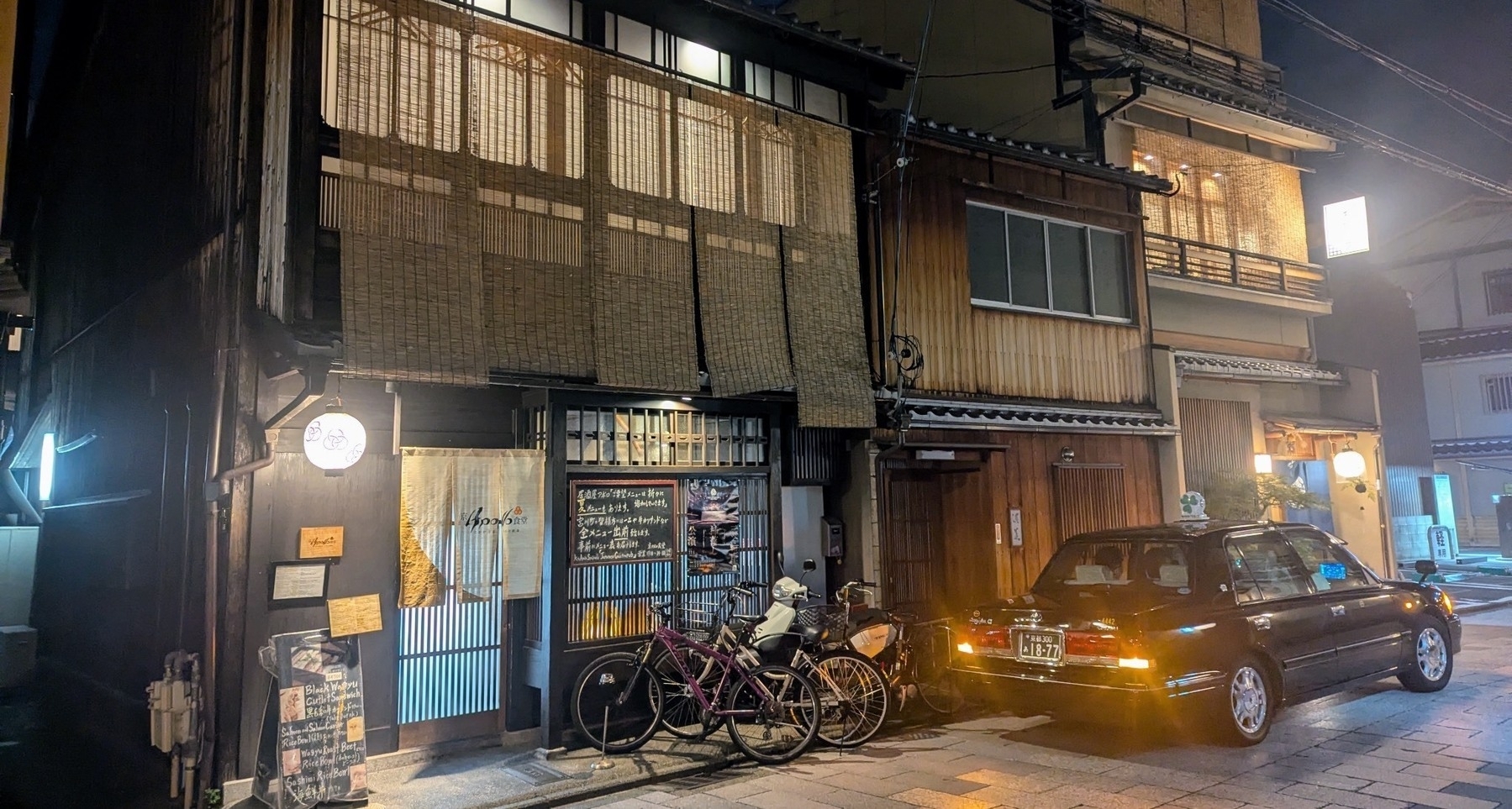
#streetphotography #kyotojapan #shuhari
The hills just to the North of Kyoto, from Kurama-dera temple. There’s a cool breeze up here, seemingly far removed from the sweltering city.
Shu Ha Ri: The Japanese Way of Learning, for Artists and Fighters is available now.
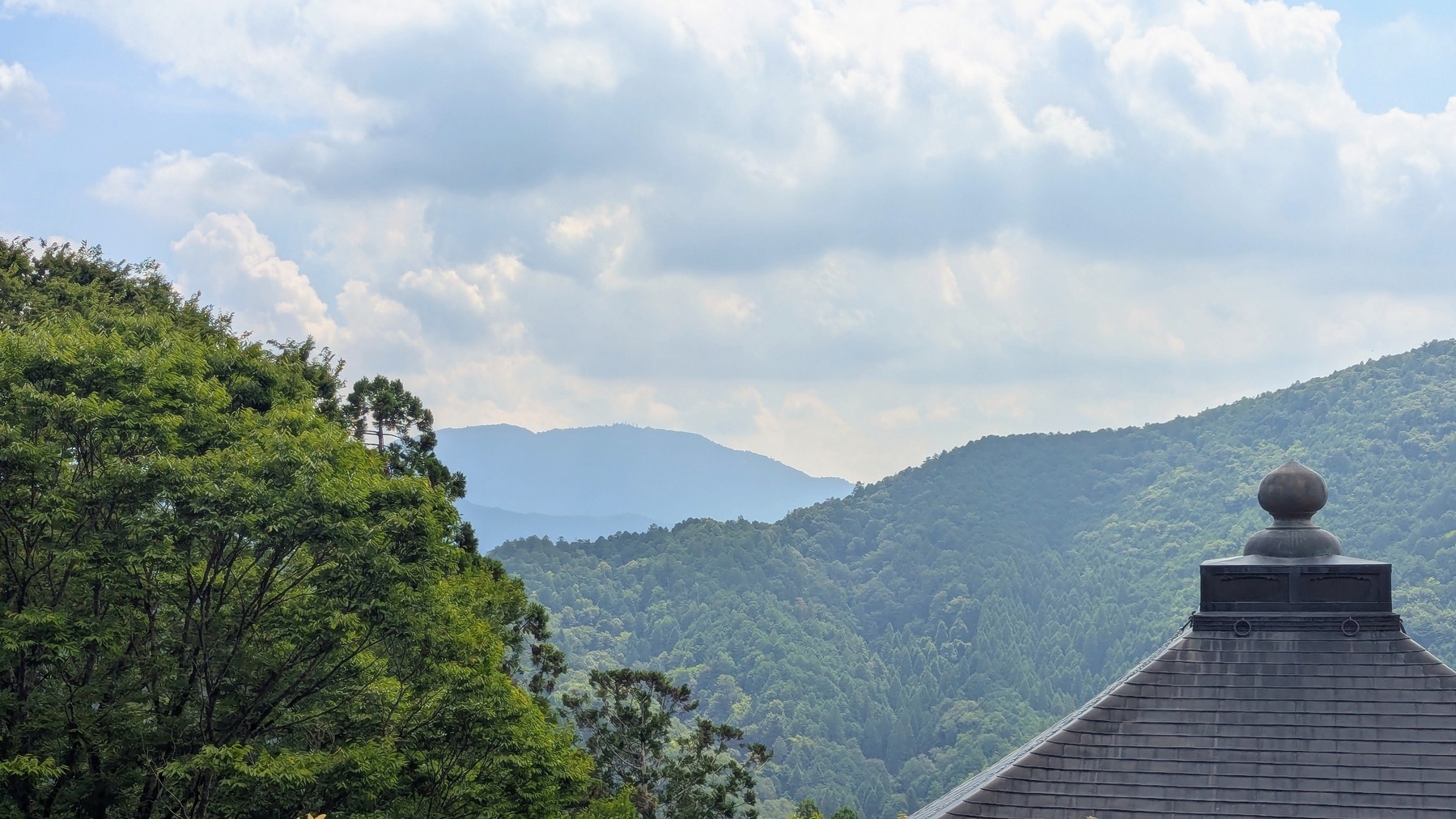
I’m excited to be heading to Japan for some research. But just realised I’ve spent more time learning Japanese history than the Japanese language. Oops.
#shuhari #JapanTravel #writingslowly #amwriting